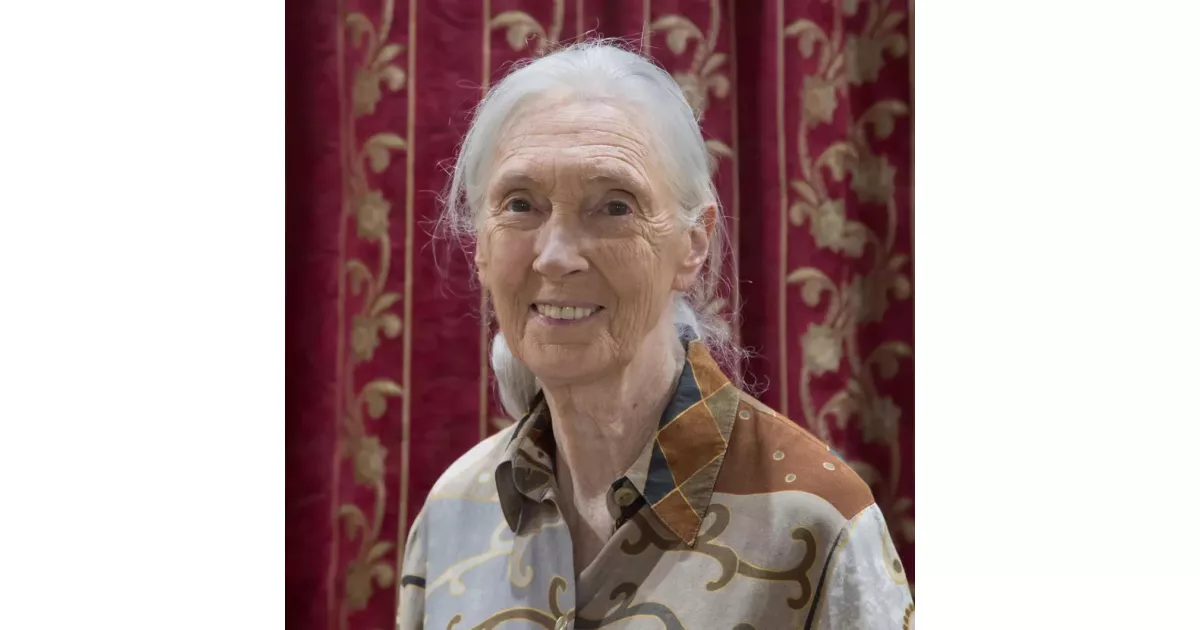Jane Goodall is a renowned English primatologist, zoologist, and anthropologist, considered the world's leading expert on chimpanzees. Beginning her research in 1960 at Gombe Stream National Park in Tanzania, she has dedicated over 60 years to studying the social and family lives of wild chimpanzees. Her groundbreaking work revolutionized our understanding of these primates, demonstrating their complex behaviors and intelligence. Goodall is also a dedicated conservationist and advocate for animal welfare, working to protect chimpanzees and their habitats through the Jane Goodall Institute and her Roots & Shoots program.
1906: Margaret Myfanwe Joseph's birth
In 1906, Margaret Myfanwe Joseph, Jane Goodall's mother, was born. She was a novelist who wrote under the name Vanne Morris-Goodall.
1907: Mortimer Herbert Morris-Goodall's birth
In 1907, Mortimer Herbert Morris-Goodall, the father of Jane Goodall, was born. He was a businessman.
April 1934: Valerie Jane Morris-Goodall's birth
In April 1934, Valerie Jane Morris-Goodall was born in Hampstead, London, to Mortimer Herbert Morris-Goodall and Margaret Myfanwe Joseph, who wrote novels under the name Vanne Morris-Goodall.
April 1934: Birth of Jane Morris Goodall
In April 1934, Valerie Jane Morris-Goodall, later known as Dame Jane Goodall, was born. She later became a primatologist and anthropologist known for her extensive research on chimpanzees.
1958: Leakey sends Goodall to London for primate studies
In 1958, Louis Leakey arranged for Jane Goodall to study primate behavior with Osman Hill and primate anatomy with John Napier in London, preparing her for her future research.
July 1960: Goodall goes to Gombe Stream National Park with her mother
On 14 July 1960, Jane Goodall, accompanied by her mother, went to Gombe Stream National Park to study chimpanzees, becoming the first of The Trimates.
1960: Goodall begins studying chimpanzees in Gombe
In 1960, Jane Goodall began her study of chimpanzee social and family life in Gombe Stream National Park, Tanzania, focusing on the Kasakela chimpanzee community.
1960: Goodall goes to Gombe Stream National Park
In 1960, Jane Goodall first went to Gombe Stream National Park in Tanzania to observe chimpanzees in their natural habitat, marking the beginning of her extensive research.
1962: Goodall attends University of Cambridge
In 1962, Louis Leakey arranged funding for Jane Goodall to attend the University of Cambridge to pursue a PhD without having a prior bachelor's degree.
March 1964: Married Baron Hugo van Lawick
On March 28, 1964, Jane Goodall married Dutch nobleman and wildlife photographer Baron Hugo van Lawick in London, becoming known as Baroness Jane van Lawick-Goodall during their marriage.
1964: Goodall receives Bachelor of Arts degree
By 1964, Jane Goodall received her Bachelor of Arts degree in natural sciences from Newnham College, Cambridge.
1966: Goodall completes PhD thesis
In 1966, Jane Goodall completed her PhD thesis on the Behaviour of free-living chimpanzees, detailing her first five years of study at the Gombe Reserve.
1974: Divorced Baron Hugo van Lawick
In 1974, Jane Goodall divorced Baron Hugo van Lawick, with whom she had a son.
1974: Start of Gombe Chimpanzee War
In 1974, the Gombe Chimpanzee War began, lasting until 1978. Jane Goodall later described this period in her memoir.
1977: Establishment of Jane Goodall Institute
In 1977, Jane Goodall established the Jane Goodall Institute (JGI) to support Gombe research and protect chimpanzees and their habitats.
1977: Mystical experience at Notre Dame Cathedral
In 1977, Jane Goodall had a mystical experience at Notre Dame Cathedral, which she later described in her 1999 book, Reason for Hope: A Spiritual Journey. This experience led her to believe in a guiding power in the universe, or God.
1978: End of Gombe Chimpanzee War
In 1978, the Gombe Chimpanzee War ended. Jane Goodall later wrote about it in her 1990 memoir, "Through a Window".
October 1980: Death of Derek Bryceson
In October 1980, Jane Goodall's second husband, Derek Bryceson, a member of Tanzania's parliament and director of that country's national parks, died of cancer. His position in the Tanzanian government had protected Goodall's research project.
1986: Attended Understanding Chimpanzees conference
In 1986, Jane Goodall credited the Understanding Chimpanzees conference for shifting her focus from observation to a broader concern with animal-human conservation.
1987: The Far Side Cartoon Controversy
In 1987, Gary Larson published a 'Far Side' cartoon that referenced Jane Goodall. The Jane Goodall Institute initially deemed the cartoon an "atrocity," but Goodall herself later found it amusing and named it her favourite depiction of herself in pop culture.
1988: Gary Larson visited Goodall's research facility
In 1988, Gary Larson, the creator of The Far Side, visited Jane Goodall's research facility in Tanzania, where he was attacked by a chimpanzee named Frodo.
1990: Publication of memoir, Through a Window
In 1990, Jane Goodall described the 1974-1978 Gombe Chimpanzee War in her memoir, "Through a Window: My Thirty Years with the Chimpanzees of Gombe", publishing her findings revolutionised contemporary knowledge of chimpanzee behaviour.
1990: Stevie Nicks wrote "Jane"
In 1990, Stevie Nicks wrote the song "Jane" celebrating Jane Goodall's life and work.
1991: Publication of a book focusing on Goodall's research methods
In 1991, Margaret Power published a book criticizing Jane Goodall's research methods, particularly the use of feeding stations, arguing they altered chimpanzee behavior and social relationships, leading to aggression and conflict not seen before.
1991: Roots & Shoots programme begins
In 1991, the Roots & Shoots programme began when a group of teenagers met with Jane Goodall in Dar es Salaam to discuss environmental problems.
1992: Founded Tchimpounga Chimpanzee Rehabilitation Centre
In 1992, Jane Goodall founded the Tchimpounga Chimpanzee Rehabilitation Centre in the Republic of Congo to care for chimpanzees orphaned due to the bush-meat trade.
1993: Goodall's decision to name animals
In 1993, Jane Goodall wrote about her decision to name the chimpanzees she studied instead of assigning numbers, defying the convention of avoiding emotional attachment.
1994: Founded Lake Tanganyika Catchment Reforestation and Education project
In 1994, Jane Goodall founded the Lake Tanganyika Catchment Reforestation and Education (TACARE) project to protect chimpanzee habitat by reforesting hills around Gombe and educating communities on sustainability.
1994: "Jane" released on 'Street Angel'
In 1994, Stevie Nicks's song "Jane", which celebrates Jane Goodall's life and work, was released as the last track on Nicks's album 'Street Angel'.
1998: Goodall becomes president of Advocates for Animals
In 1998, Jane Goodall became the president of Advocates for Animals, an organization based in Edinburgh, Scotland.
1999: Published 'Reason for Hope: A Spiritual Journey'
In her 1999 book 'Reason for Hope: A Spiritual Journey', Jane Goodall described a mystical experience she had in 1977 and shared her belief in a guiding power in the universe.
2000: Founded Ethologists for the Ethical Treatment of Animals
In 2000, Jane Goodall, along with Professor Mark Bekoff, founded the organisation Ethologists for the Ethical Treatment of Animals to ensure the safe and ethical treatment of animals during ethological studies.
2000: Death of Margaret Myfanwe Joseph
In 2000, Margaret Myfanwe Joseph, Jane Goodall's mother, passed away.
2001: Parodied in The Simpsons
In 2001, Jane Goodall was parodied in The Simpsons episode "Simpson Safari", where Dr. Joan Bushwell was written as an indirect parody of her.
2001: Death of Mortimer Herbert Morris-Goodall
In 2001, Mortimer Herbert Morris-Goodall, Jane Goodall's father, passed away.
April 2002: Appointed UN Messenger of Peace
In April 2002, Jane Goodall was named a United Nations Messenger of Peace by Secretary-General Kofi Annan.
April 2002: Named United Nations Messenger of Peace
In April 2002, Jane Goodall was named a United Nations Messenger of Peace, recognizing her contributions to conservation and animal welfare.
2004: Goodall dedicates time to advocacy
As of 2004, Jane Goodall dedicated virtually all of her time to advocacy on behalf of chimpanzees and the environment, traveling extensively. She also joined the advisory council for Save the Chimps sanctuary.
2004: Investiture to damehood at Buckingham Palace
In 2004, Jane Goodall's investiture to damehood was held at Buckingham Palace.
2004: Hunting Act 2004
In 2015, Jane Goodall signed a letter to Members of Parliament opposing the Conservative prime minister David Cameron's plan to amend the Hunting Act 2004. She opposed fox hunting.
June 2006: Open University of Tanzania awards honorary degree
On 19 June 2006, the Open University of Tanzania awarded Jane Goodall an honorary Doctor of Science degree, recognizing her contributions to science and conservation.
2008: Gave lecture entitled "Reason for Hope"
In 2008, Jane Goodall gave a lecture entitled "Reason for Hope" at the University of San Diego. She also demanded the European Union end medical research on animals and fund alternative methods.
2009: Goodall writes about farm animal intelligence
In 2009, Jane Goodall wrote in "The Inner World of Farm Animals" about the awareness and intelligence of farm animals, advocating for their respect and help.
September 2010: Expressed Belief in a Great Spiritual Power
In September 2010, Jane Goodall stated that she believed in a great spiritual power, particularly feeling it in nature, and saw no contradiction between evolution and belief in God, while also saying she was raised as a Christian. This was in an interview with The Guardian.
2010: Roots & Shoots reaches over 100 countries
By 2010, the Roots & Shoots organisation had expanded to over 10,000 groups in over 100 countries.
2010: Benefit Concert at DAR Constitution Hall
In 2010, Dave Matthews and Tim Reynolds held a benefit concert at DAR Constitution Hall in Washington, D.C., to commemorate "Gombe 50: a global celebration of Jane Goodall's pioneering chimpanzee research and inspiring vision for our future".
2010: Goodall petitions to list all chimpanzees as endangered
In 2010, Jane Goodall, through JGI, formed a coalition to petition for all chimpanzees, including those in captivity, to be listed as endangered.
March 2011: Archives moved to Duke University
On 17 March 2011, it was announced that the Jane Goodall archives would be moved to Duke University from the University of Minnesota, with Anne E. Pusey overseeing the collection.
2011: Goodall becomes patron of Voiceless
In 2011, Jane Goodall became a patron of the Australian animal protection group Voiceless, expressing her concern about factory farming.
2012: Goodall joins Engage in Conservation Challenge
In 2012, Jane Goodall took on the role of challenger for the Engage in Conservation Challenge with The DO School, working to engage young people in conserving biodiversity.
2012: Expressed fascination with the possibility of undiscovered primates
In 2012, during an interview with the Huffington Post, Jane Goodall expressed her fascination and desire for the existence of undiscovered primate species, including cryptids like Sasquatch and Bigfoot, while acknowledging the lack of concrete evidence.
2013: Plagiarism Discovery in 'Seeds of Hope'
In 2013, Jane Goodall and Gail Hudson's book 'Seeds of Hope' faced a delay in its release date due to the discovery of plagiarized sections. These sections were copied from various websites, including those about organic tea and tobacco, an astrology site, and Wikipedia. Goodall apologized and pledged to correct the issues.
April 2014: Release of 'Seeds of Hope' after revisions
In April 2014, the book 'Seeds of Hope' by Jane Goodall and Gail Hudson was released after review, which included the addition of 57 pages of endnotes. The plagiarism accusations had led Goodall to revise the book after blaming the issues on her 'chaotic note taking'.
2014: Goodall criticizes Air France
In 2014, Jane Goodall criticized Air France for transporting monkeys to laboratories. The same year she also criticized maternal deprivation experiments.
2015: USFWS classifies all chimpanzees as endangered
In 2015, the U.S. Fish and Wildlife Service (USFWS) announced that all chimpanzees would be classified as endangered, accepting the petition supported by Jane Goodall.
2015: Endorsed Caroline Lucas
Prior to the 2015 UK general election, Jane Goodall endorsed the parliamentary candidacy of the Green Party's Caroline Lucas.
November 2017: Interview with The Hollywood Reporter on feeding stations
In November 2017, Jane Goodall acknowledged in an interview with The Hollywood Reporter, regarding the controversy around the feeding stations at Gombe, that she wouldn't continue with them in present time due to the current knowledge about chimpanzees contracting human diseases, of which they were unaware in the past.
2017: Goodall becomes Disneynature ambassador
As of 2017, Jane Goodall was an ambassador for Disneynature, continuing her advocacy for environmental causes.
2017: Wrote foreword for 'The Intelligence of the Cosmos'
In 2017, Jane Goodall wrote the foreword to 'The Intelligence of the Cosmos' by Ervin Laszlo, where she expressed her belief in an Intelligence driving evolution and a Supreme Being.
2018: Partnered with Schmidt's Naturals
In 2018, Jane Goodall partnered with Michael Cammarata on natural product lines from Schmidt's Naturals to benefit the Jane Goodall Institute.
August 2019: Honoured with a bronze sculpture
In August 2019, Jane Goodall was honored with a bronze sculpture in Midtown Manhattan for her contributions to science. She was featured alongside nine other women as part of the Statues for Equality project.
2019: Primatology field nearly evenly split between men and women
By 2019, the field of primatology consisted of almost evenly men and women. This development is thanks to Jane Goodall's trailblazing work and encouragement of young women to join the field.
2019: Voiced herself on "Gorillas on the Mast"
In 2019, Jane Goodall voiced herself on The Simpsons episode "Gorillas on the Mast".
2019: Named one of Time's 100 most influential people
In 2019, Time magazine named Jane Goodall as one of the 100 most influential people in the world.
2020: Advocated for Ecocide to be made an International Crime
In 2020, Jane Goodall advocated for ecocide, defined as the mass damage or destruction of nature, to be recognized as an international crime. Additionally, in 2020, Goodall vowed to plant 5 million trees as part of the World Economic Forum's 1 trillion tree initiative.
2020: Partnered with Neptune Wellness Solutions
In 2020, Jane Goodall partnered with Michael Cammarata on natural product lines from Neptune Wellness Solutions to benefit the Jane Goodall Institute.
October 2021: Joined Rewriting Extinction campaign
In October 2021, Jane Goodall joined the Rewriting Extinction campaign to fight climate and biodiversity crisis through comics. She contributed to "The Most Important Comic Book on Earth: Stories to Save the World", released on October 28, 2021, by DK.
December 2021: Guest Editor of BBC Radio Four Today Programme
On December 31, 2021, Jane Goodall was the guest editor of the BBC Radio Four Today programme. She chose Francis Collins to be the presenter of Thought for the Day.
2021: Goodall becomes vegan and authors a cookbook
In 2021, Jane Goodall became a vegan and authored a cookbook titled "Eat Meat Less", advocating for ethical eating habits.
2021: Called on EU Commission to abolish caging of farm animals
In 2021, Jane Goodall called on the EU Commission to abolish the caging of farm animals.
2021: Received the Templeton Prize
In 2021, Jane Goodall received the Templeton Prize.
March 2022: Lego tribute to Jane Goodall
On March 3, 2022, the Lego Group issued set number 40530, A Jane Goodall Tribute, depicting a Jane Goodall minifigure and three chimpanzees in an African forest scene, in celebration of Women's History Month and International Women's Day.
2022: Goodall joined board of Nonhuman Rights Project
In 2022, Jane Goodall joined the board of the Nonhuman Rights Project. She worked for the organization until her death in 2025.
2022: Received the Stephen Hawking Medal for Science Communication
In 2022, Jane Goodall received the Stephen Hawking Medal for Science Communication for her long-term study of social and family interactions of wild chimpanzees.
2022: Mattel released Barbie-themed Goodall doll
In 2022, Mattel released a Barbie-themed Jane Goodall doll made from recycled plastic, dressed in field attire with binoculars and a notebook, in recognition of her conservation work and achievements.
April 2023: Awarded as Officer in the Order of Orange-Nassau
In April 2023, Jane Goodall was awarded as Officer in the Order of Orange-Nassau in a ceremony in The Hague, the Netherlands.
October 2024: Gave "A Speech for History" at UNESCO
In October 2024, Jane Goodall gave "A Speech for History" at UNESCO, delivering an optimistic message on conservation and the role everyone can play by educating youth and communities to protect the natural world.
January 2025: Awarded the Presidential Medal of Freedom
In January 2025, Jane Goodall was awarded the Presidential Medal of Freedom by President Joe Biden.
October 2025: Death of Jane Goodall
In October 2025, Jane Goodall passed away. During her lifetime, she was a prominent primatologist and anthropologist.
2025: Goodall's death
In 2025, Jane Goodall passed away, leaving behind a legacy of extensive work in primatology, conservation, and animal welfare.
Mentioned in this timeline
Lego is a line of plastic construction toys created by...
Africa is the second-largest and second-most populous continent home to...
Tanzania officially the United Republic of Tanzania is an East...
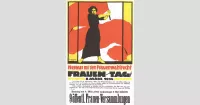
International Women's Day IWD observed annually on March th commemorates...
Kenya officially the Republic of Kenya is an East African...

Chicago is the most populous city in Illinois and the...
Trending
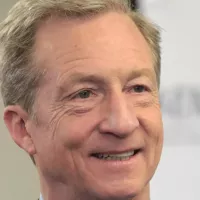
54 minutes ago Tom Steyer's California plan faces criticism while he spends millions on governor's race.

54 minutes ago Darius Garland Prepares for Clippers Debut Against Warriors After Trade
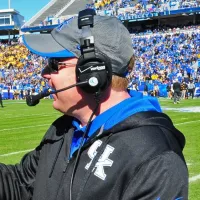
54 minutes ago Mark Stoops Hired by Texas as Special Assistant to Steve Sarkisian

54 minutes ago Tyus Jones Joins Denver Nuggets: Bolstering Depth Before Jazz Game.
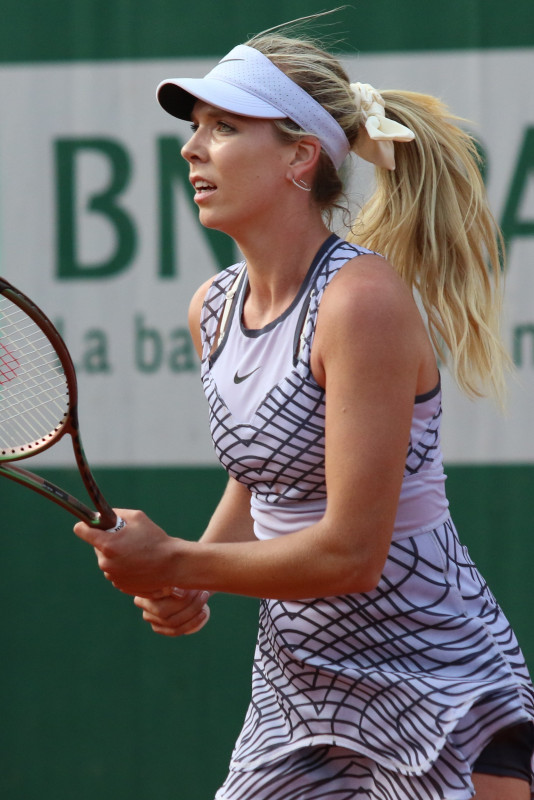
3 days ago Katie Boulter faces Jasmine Paolini in WTA Merida Quarterfinals; Hon Prediction

55 minutes ago Rubio: US attacked Iran preemptively due to Israeli plans; six service members killed.
Popular

Jesse Jackson is an American civil rights activist politician and...

Hillary Diane Rodham Clinton is a prominent American politician lawyer...

Jim Carrey is a Canadian-American actor and comedian celebrated for...

XXXTentacion born Jahseh Dwayne Ricardo Onfroy was a controversial yet...

Kashyap Pramod Patel is an American lawyer who became the...

Barack Obama the th U S President - was the...
